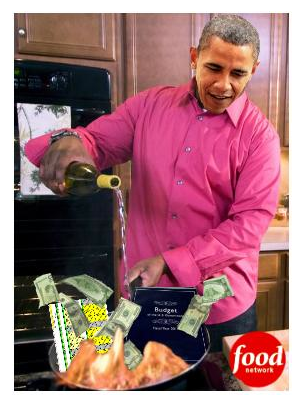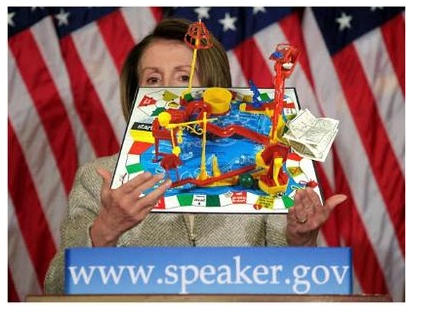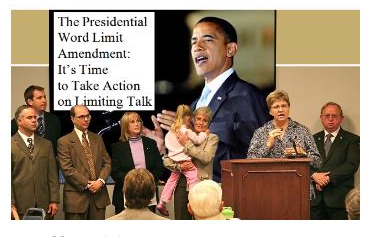Here’s an excellent discussion on the economy and China. We present many views here, and Pragcap’s are some of the most thoughtful and balanced. And if you haven’t yet, check out Op-Toon’s Review (fun images and satirical commentary). – Ilene
IS CONGRESS ABOUT TO DERAIL THE ECONOMY?
Courtesy of The Pragmatic Capitalist
 The United States government has made a curious series of interventionist moves over the course of the last 18 months. Some have been beneficial, but not surprisingly, few of these policies are actually helping the economy recover from the Great Recession.
The United States government has made a curious series of interventionist moves over the course of the last 18 months. Some have been beneficial, but not surprisingly, few of these policies are actually helping the economy recover from the Great Recession.
As I’ve previously mentioned, Keynesianism can work. There is good government spending and bad government spending, despite the constant shrieking from Austrian economists with regards to all spending being bad. Giving money (on a silver platter) to banks who are not reserve constrained is exhibit A of bad spending. Spending money on a healthcare plan in the middle of a recession is a close runner-up. The banking bailouts not only set a terrible social precedent, but were also implemented with the belief that banks are reserve constrained – something that is entirely false.
The great recession was never a banking sector problem despite it being labeled as a “credit crisis”. In reality, this was a consumer driven crisis. The results prove this. The banks have recovered, but lending hasn’t improved. Why? Because this is a consumer driven recession. Banks aren’t reserve constrained. Finding willing borrowers, on the other hand, is a whole other matter….
 The healthcare debate is a bit more messy. While the social aspects of healthcare spending are likely positive, you just have to wonder about the motives of the men pushing this plan when we are mired in the worst recession in 75 years. Is healthcare really our top priority when unemployment remains near 10%? More importantly, is this an efficient form of government spending when we could easily target job creation or other productive investments in the long-term growth of America (China’s high speed rail system comes to mind here). Meanwhile, we have an antiquated infrastructure. Where are the priorities?
The healthcare debate is a bit more messy. While the social aspects of healthcare spending are likely positive, you just have to wonder about the motives of the men pushing this plan when we are mired in the worst recession in 75 years. Is healthcare really our top priority when unemployment remains near 10%? More importantly, is this an efficient form of government spending when we could easily target job creation or other productive investments in the long-term growth of America (China’s high speed rail system comes to mind here). Meanwhile, we have an antiquated infrastructure. Where are the priorities?
But the political pandering is taking a turn for the worst in recent days and surprisingly, markets are ignoring this potentially devastating global debate. Hypocritically, the latest government pandering is targeted at the Chinese and their “manipulative” government. Oh those darned Chinese and their interventionist ways! How dare they manipulate their currency! (Nevermind that the United States indirectly “manipulates” its currency via monetary and fiscal policy on a daily basis..)
Ironically, the Chinese implemented an unnecessary and all too effective stimulus plan (in essence, they targeted long-term investments in their nation while we targeted bank vaults) in response to the downturn. This has resulted in a remarkable rebound in China that helped thwart a more severe global downturn. Now, economists like Paul Krugman are blaming China for the “liquidity trap” that the rest of the world is suffering from. But is China really to blame for the current predicament? I don’t think so. The current crisis was caused by a complex mix of de-regulation, excessive private sector debt levels, private sector greed and financial “innovation”. In addition, where were all of these complaints when China was largely driving the 2003-2007 recovery and unemployment was at 4%? This attack on China is not only misguided, but has potentially dramatic economic consequences.
Paul Krugman says we should slap China with a 25% tariff. This is not only an extremely dangerous protectionist precedent, but very seriously risks the viability of what meager recovery we are seeing. Such a policy will directly impact U.S. corporate operating margins and/or result in higher prices on store shelves. With the U.S. consumer still extremely weak the last thing they need is a round of price hikes. Such a move by the government could not only undermine our standard of living, but could also destroy any potential for future corporate hiring as companies seek out other avenues of continued profit growth.
Furthermore, the growth in China is viewed as stable and sustainable, but we are not so certain. China is going to confront a potentially vicious battle with inflation in the coming years as wage inflation surges and aggregate demand continues to climb. Remember, they didn’t have the severe private sector debt problems that existed in many other nations, yet they flooded the market with stimulus (i.e., unnecessary spending). The resulting inflationary strains from the stimulus are already causing significant strain on local manufacturers. An increase in their costs would only put more strain on these firms and further hurt the recovery in China.
The assumption of course is that Chinese consumers might pick up the slack, but the Chinese are habitual savers. There is no guaranteeing that this will change in the near-term. This is no time to be contributing to any potential problems in China just so you can pander to your political party. If we lose China’s strength in this recovery we will all lose.
Many blame the current bout of high unemployment in the United States on difficulties caused by China’s currency peg. First, there is very little historical evidence that tariffs improve employment. Second, very few people were complaining about labor shortages in the United States when the unemployment rate was running at 4% just 4 years ago. Thirdly, anyone who thinks these jobs will magically come back to U.S. shores is kidding themselves. U.S. multinationals will not crush their margins just so an American can have a job that a Vietnamese is willing to do longer for less. This is the pure and simple truth of the global free market.
 I am not against all forms of government intervention (I have been an advocate of harsh regulatory changes), but a tariff is not an efficient form of government intervention in the current environment. A tariff simply gives the U.S. government more control over resource allocation and forces citizens to purchase goods and services they would otherwise reject. Why should Americans be forced to accept a lower standard of living just because a few politicians want to look tough and a few economists haven’t thought about the real-life effects of such measures?
I am not against all forms of government intervention (I have been an advocate of harsh regulatory changes), but a tariff is not an efficient form of government intervention in the current environment. A tariff simply gives the U.S. government more control over resource allocation and forces citizens to purchase goods and services they would otherwise reject. Why should Americans be forced to accept a lower standard of living just because a few politicians want to look tough and a few economists haven’t thought about the real-life effects of such measures?
Humorously, Peter Schiff laid into Krugman and accused him of a lack of economic understanding and then stormed into a tirade about how government debt was going to result in China selling bonds and losing faith in the U.S. government’s ability to meet their obligations (which can’t technically happen). The irony and fear mongering here is almost sickening. Peter Schiff displays, perhaps, the greatest lack of understanding of our monetary system of any pundit in the world. Do you wonder why this man, who essentially predicted the downturn, lost phenomenal amounts of money for his clients? Schiff, unfortunately, like many of our politicians doesn’t understand how our monetary system actually works. He completely fails to connect the dots between “printing money” and how money actually gets credited and debited in the economy.
He is stuck in a gold standard world that is no longer applicable (the gold standard is dead, it ain’t coming back and that is a good thing). He thinks we borrow and tax in order to spend (false!). He thinks we “print money” recklessly that leads to inflation. He thinks foreigners fund all of our spending. He thinks the Chinese are going to dump all of our dollars and cause the currency to collapse in a spectacular Zimbabwean fiasco. It all sounds very scary, but is pure and simple fear mongering. In exchange for real goods and services, we send the Chinese pieces of paper that they can either leave in their bank vaults earning 0% or they can wisely invest in U.S. assets (such as t-bills). If they sell, they sell. That won’t stop the flood of U.S. dollars entering their borders looking for a dusty floor on which to earn 0% (at their detriment). Could they dump dollars on the market? Sure. But as Michael Pettis said, this would have a negligible impact on the deep U.S. capital markets:
“the net effect was one of the most massive short-term transfers of wealth ever recorded from one group of countries, the European belligerents, to another, the US. European dumping caused a collapse in prices, and US investors ultimately scooped up the assets up very cheaply….We have seen asset dumping before, and on an even larger scale, and the US capital market is deep enough that it might easily absorb it.”
Regardless, the U.S. and Chinese economies are inextricably linked. The Chinese will not stop buying our bonds because it is to their detriment to do so. Likewise, we will not stop consuming their cheap goods and services.
Our problems are domestic and this protectionist fury will not help solve this. Over the course of the last 10 years the U.S. economy has muddled through a boom and bust cycle (in large part thanks to Fed meddling) that has left it deeply scarred. We have become too dependent on a get rich quick financial sector (which should have been downsized) while forgetting what real innovation and productivity can generate. The government’s constant meddling in the economy has done little help all of this as we attempt to reside in a capitalist society where losers never lose and prudence rarely pays off. Even worse, we have spoiled our children without teaching them what hard work and ingenuity can lead to. It’s no coincidence that the “greatest generation” of Americans was raised by the most hardened generation America has ever seen.
Nonetheless, two devastating recessions later, U.S. corporations are actually in remarkably good condition. Corporate cash levels are at record highs and U.S. businesses are as lean and mean as they’ve ever been. Much of this strength over the last 10 years has been attributable to China. Not only has China contributed substantially to top-line growth in the S&P 500, but operating margins have become so wide over the last ten years that you can drive a Mack truck thru them. As we’ve previously mentioned, this recovery has been absent of revenue growth, but the one thing that has kept corporations from imploding is margin expansion. Access to cheap labor and services abroad has been a large contributor. While the government bails out bankers and homeowners (who should be renting), corporate America is trying its best to play its role in the rebound. That’s in large part because of China. While many are still complaining about the jobless recovery, the truth is that corporations are well positioned to begin hiring again.
The same positive statement cannot be made for U.S. consumers and the Chinese are in no great rush to encourage their consumers to become more like the debt-laden U.S. consumer. As Axel Merk recently said:
“Chinese reject this [consumer credit based] approach because they don’t want to promote a U.S. style, debt driven consumer boom.”
This brings us to perhaps the most interesting facet of this debate: the social aspect. The real problem is that Chinese do not consume enough. Recent data shows that the Chinese savings rate is 30% – up from 16% in 1990. Unfortunately, Americans, being the narrow minded bunch that we are, fail to understand the social reasoning behind this dynamic. We just don’t understand it because, well, we think it is our patriotic duty to own the latest gizmo and gadget. But the mentality is not the same in China. Some presume it is due to a government that can’t be trusted to take care of its people when they are older. Others say it is due to the growing gender gap and marital competition. Either way, the inherent desire to save in China is a social aspect that we Americans simply can’t relate to. Slapping them with a tariff or forcing them to adjust their currency will not change this overnight. And in the short-term it could have deeply negative ramifications for us all.
China is not to blame here. We forget that they are still a maturing economy and socially different. The process of currency revaluation simply cannot be forced. As Annaly Capital recently said, their currency peg is “unsustainable”, but the process of moving off it should not be rushed – particularly in a time of such great economic uncertainty. Unfortunately, there are votes to be won in November and that means politics once again takes precedence over the long-term well-being of Americans (and Chinese and Europeans). And what does this all mean? It means the trade war cometh. Let’s just hope the politicians don’t cause a double dip in their quest for another term…..
Sources:
1. Why do the Chinese save so much? – Columbia Business School
2. Fear is the reason Chinese save so much – NYT
******
Photos by Op-Toons Review. In order of appearance, Obama Appears on Food Network to Cook His Special "Federal Accounting Book" Recipe, Speaker Pelosi Announces Procedure for Passing Government-Run Health Care Bill, and State Legislators Propose Presidential Word Limit Amendment.


